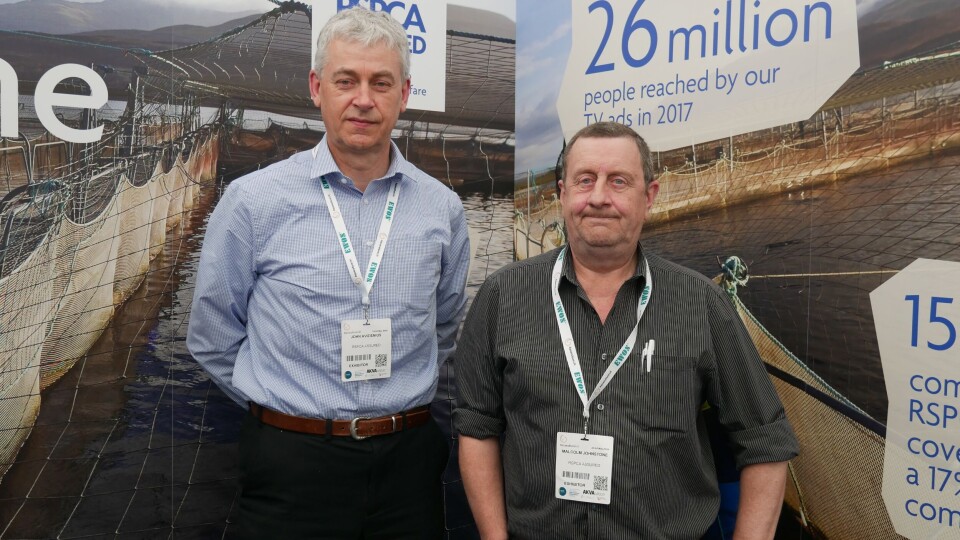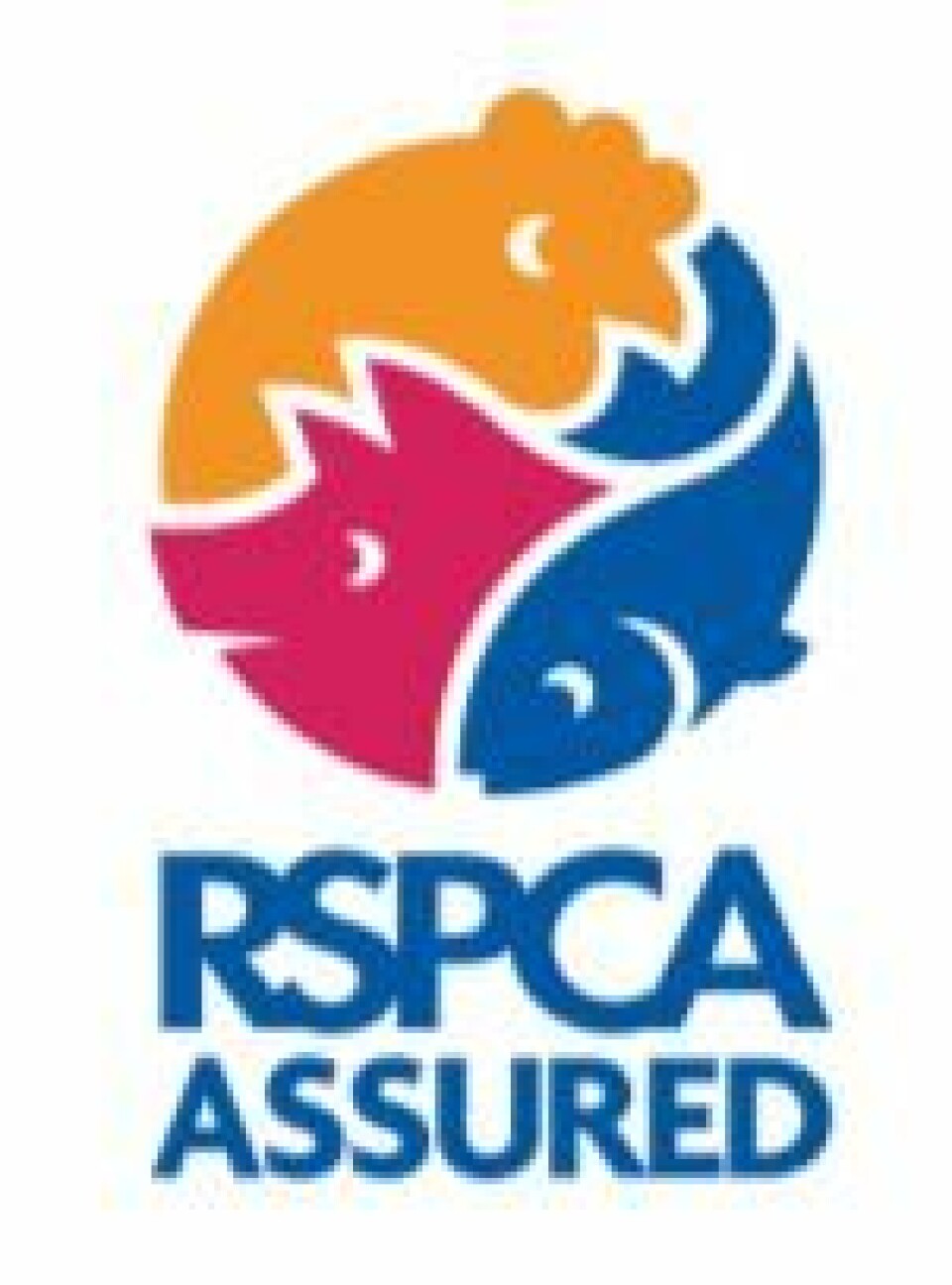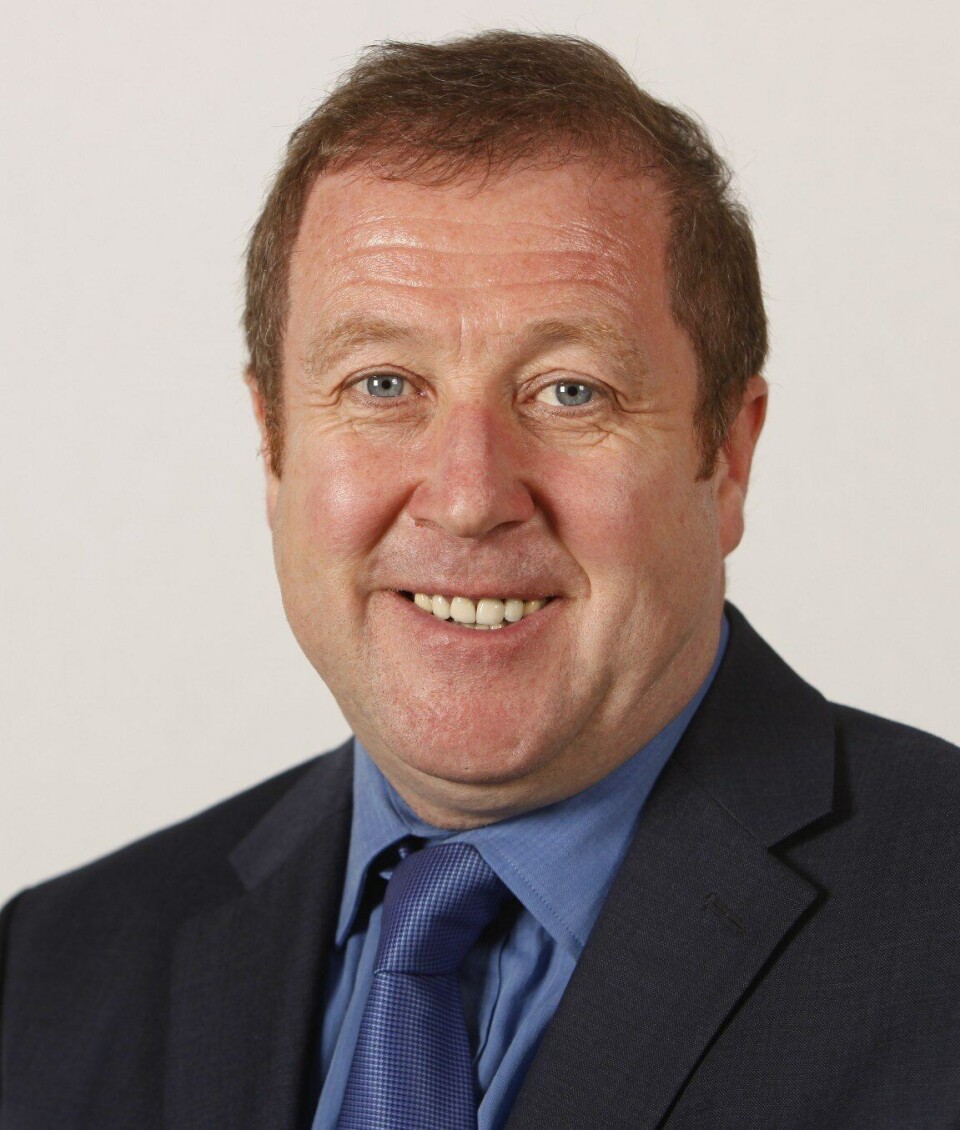
RSPCA dismay at Holyrood salmon inquiries snub
Animal welfare experts have expressed disappointment after they were denied the opportunity to appear as witnesses at two Scottish Parliamentary inquiries into salmon farming.

John Avizienius and Malcolm Johnstone, of the Royal Society for the Prevention of Cruelty to Animals (RSPCA), said there were only “two lines on fish welfare” in the report produced by the Environment, Climate Change and Land Reform (ECCLR) committee following its inquiry into the environmental impacts of salmon farming.
Avizienius, the RSPCA’s scientific and technical manager for aquaculture and ruminants, said the ECCLR committee had appeared to rely on “simplistic headlines and simplistic impressions” which he or Johnstone would have been able to correct.
He also questioned the Rural Economy and Connectivity (REC) committee’s decision to have a video conference with accreditation body the Aquaculture Stewardship Council (ASC) without offering the same option to the RSPCA.
The ASC currently has no accredited salmon farms in Scotland, and only one under assessment, whereas around 70% of Scottish salmon are farmed in accordance with RSPCA Assured welfare standards.
Avizienius said: “We are disappointed that the world’s oldest animal welfare organisation is not deemed suitable to give evidence to a committee seeking information on the Scottish salmon industry.”
Referring to the ECCLR inquiry report, which was critical of current fish farming practices, he said: “The SAMS report that the ECCLR based their inquiry on did actually say that one overriding point was that there is a lack of data about many of the issues they were looking at, and as a result of that they were not making a prognosis on the future of the industry, or a diagnosis of the industry going forward.”
“It was very, very frustrating that we couldn’t give evidence to try to counter some of the negativity, because we’ve got lots of objective evidence to show where things have improved,” added Avizienius, who was speaking at Aquaculture UK in Aviemore.
Improvements made
“Our own experience shows us where improvements have been made: in fish slaughter, rearing of larvae, water quality, transport by road, air and wellboat, handling such as grading and vaccination techniques.
“We’ve seen all of that since we started working with the industry at their invitation since 2002.
“If they had taken the trouble to read our submission maybe they could have balanced some of the things they said with some of the improvements. Instead they seemed to me to rely on simplistic headlines and simplistic impressions that all sites in Scotland suffer from sea lice. We know they don’t.
Positives not mentioned
“And [MSPs seemed to think] that the recent heightened mortality is the norm, when we know it’s not, and that if any other sector had that high level of mortality there would be an outcry. That’s just simply untrue. Only recently on Countryfile it showed that upland sheep in Scotland were basically losing up to 50% a year. And suddenly that’s been air-brushed out: it’s ‘let’s keep the negative side of salmon farming going’. It was disappointing. That led us to be quite frustrated.
“For us the uniqueness of Scottish salmon, what gives it a premium over Norwegian or other salmon, is the approach that’s been taken by the industry to the welfare of the fish over the last 16 years since we’ve worked with them.
“Those kinds of positives are not even mentioned [in the ECCLR report].”
Avizienius said the RSPCA had also applied to give oral evidence to the REC committee but was told the witness base had been finalised and that it would be difficult to fit the RSPCA in because the REC’s secretariat wasn’t sure what witness category it would fit into.
“Then, when proceedings opened with the REC committee, it was announced that they’d had a video conference with another organisation [the ASC] the day before. If that facility was available why weren’t we offered that?
“As somebody in the industry said to me, on reading the submission to the ECCLR committee, ‘why wouldn’t you speak to the RSPCA? It seems obvious that you need to speak to them’.”
Pushing welfare
Johnstone, scheme manager aquaculture for RSPCA Assured, said: “What we were really wanting to push forward was not just the experience we’ve had, but that if there’s going to be changes in the industry amid this talk of doubling value, that welfare is given the priority it deserves and should have.”
He added: “The concept of welfare is now fully accepted and understood by everyone we work with [on fish farms].”
Avizienius said: “We say that not based on hearsay but on what we actually experience. Our reputation is extremely important to us. When you’ve got the world’s oldest animal welfare organisation willing to put its provenance and logo behind an industry, we don’t do that lightly.
Unbalanced set of views
“We also feel that providing an unbalanced set of views based on partial or no evidence is not helpful.
“Some of them in the committee were almost talking like the fish farmers weren’t aware of problems, and that they were happy to just problems go. It’s so misleading. There’s not a more dynamic sector than the fish farmers that we’ve had experience with.
“Everybody knows that the problems are, everybody’s working very hard collectively to find solutions, and the level of scrutiny and negative publicity about that when everybody’s trying hard to resolve an issue doesn’t make sense. You don’t see that in other sectors.
“My other area is cattle, and I’ve been talking about lame dairy cows for the last 30 years, and yet there’s no inquiry into the dairy industry, so why is it that salmon attracts such negative publicity?”

Range of stakeholders
In a joint statement, ECCLR committee convener, Graeme Dey, and REC committee convener, Edward Mountain, said: “It’s very important for our committees to hear from a wide range of stakeholder groups to inform all of our inquiries.
“We consider all of the evidence we receive very carefully and this is also published on our website. The RSPCA submitted written responses to both committees, and these written submissions are as valuable as oral evidence and are fully taken into account.
“Unfortunately, we can’t accommodate all witnesses to speak in front of our committees, as we have limited capacity, however every effort is made to hear a balanced and wide variety of views as a matter of course.”
The REC committee’s inquiry report is due in early autumn.






















































